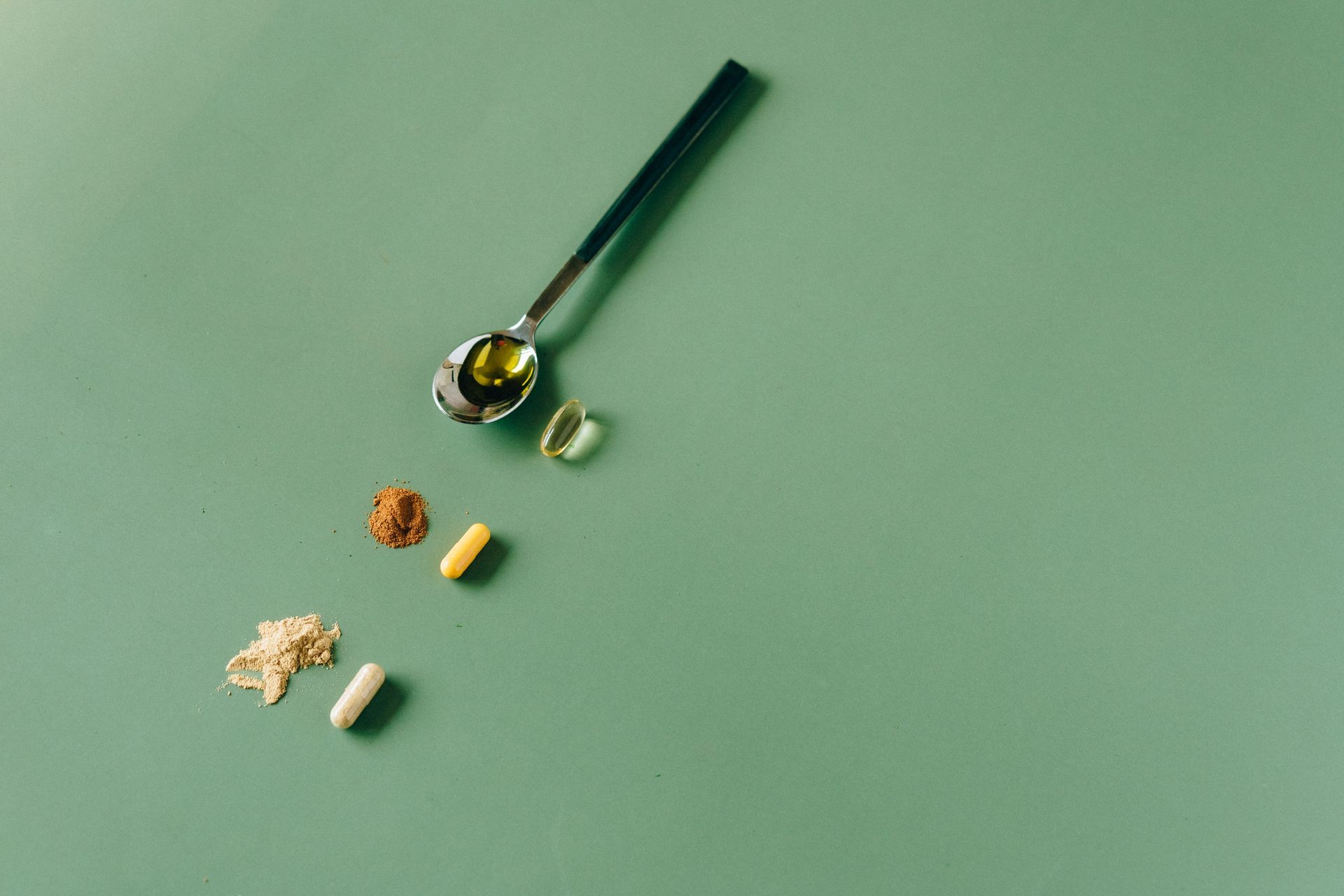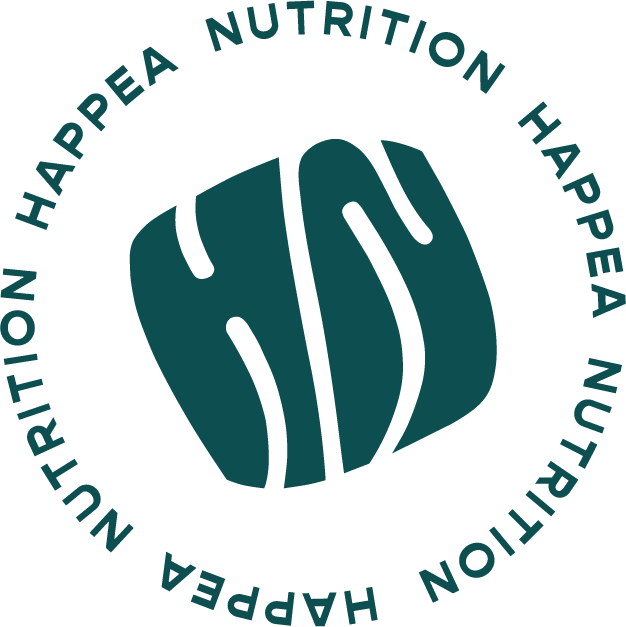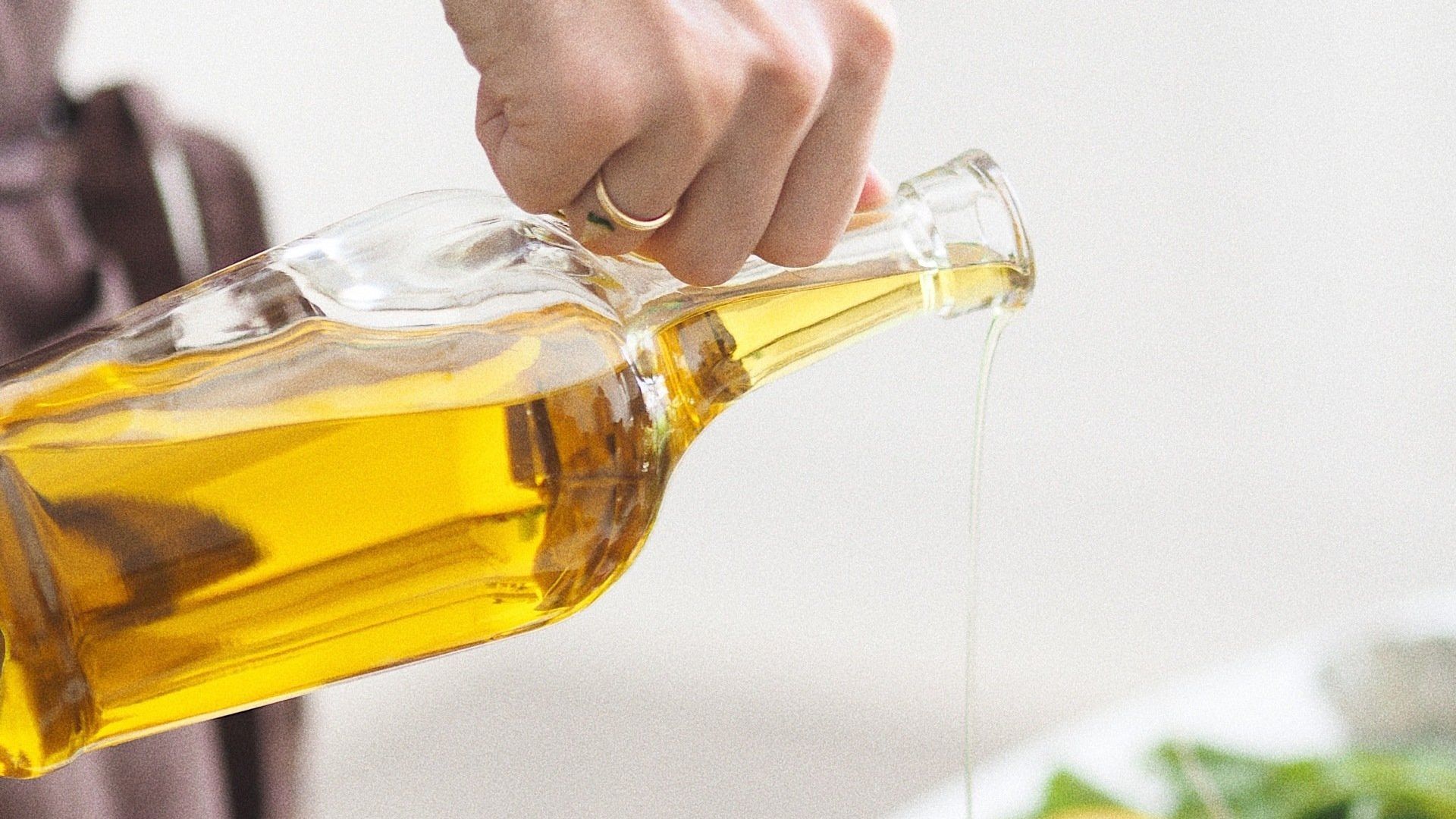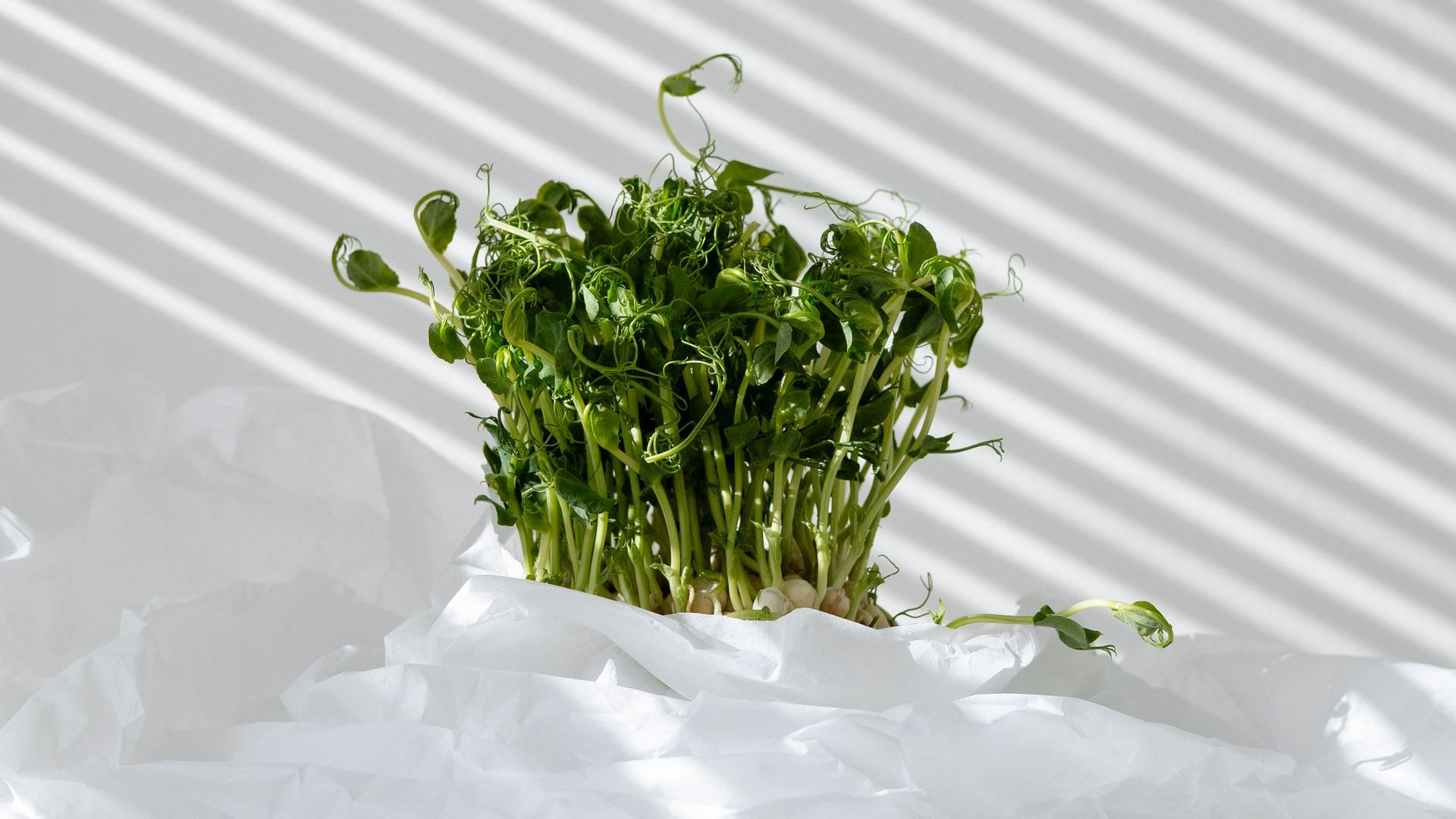Best foods for healthy hair and skin
Do you take a hair supplement?
You may not need one if you eat certain foods that contain the nutrients you need for healthy hair and glowing skin. I personally noticed a huge improvement in how fast my hair and nails grow since incorporating more protein and healthy fats into my diet. After five years of eating a fully vegan diet, I started eating a balanced pescatarian diet a few years ago and since then my hair is longer than it has been in a long time and I am finally able to grow long, strong nails.
Here are some nutrients that will make you glow from the inside out and where to find them.
Healthy fats
Many people do not get enough of healthy fats in their diet and eat too much less healthy fats. Healthy fats are monounsaturated and polyunsaturated fats that are found in nuts, seeds, avocados or seafood. The fats to limit are saturated fats which are found mostly in animal products (note that limiting does not mean eliminating completely). Fatty acids are needed for healthy hair and skin. If you get very dry and scaly skin it could be due to lack of healthy fats in the diet.
Omega-3 fatty acids are especially important because our body cannot make them, which means they are essential. We need to consume them from our diet or we won't be able to have enough. Those fats are known for their anti-inflammatory and cardio-protective properties. The body needs omega-3 fatty acids to build cell walls, including those in your skin and hair. Make sure you eat fish or seafood at least twice per week and include foods like avocado, nuts, seeds, and olive oil in your diet to get plenty of these fatty acids.
Protein
Our hair is made of a protein called keratin, so a diet insufficient in protein may make hair brittle. While most Americans get plenty of protein, you may be falling short if you are following a very restrictive or poorly planned vegan diet. If you follow a vegan or vegetarian diet, make sure you are getting plenty of plant-based sources of protein from foods like tofu, beans and legumes, nuts and seeds or nut butters. The minimum amount of protein needed is 0.8 g per kilogram of bodyweight but many active individuals will need more than that for optimal health.
B-vitamins
Many B-vitamins play an important role in hair and skin health. Luckily they are found in a wide variety of foods. Here are the ones you should pay attention to if you want shiny hair and glowing skin:
Biotin
One of the most popular ingredients in hair supplements and even shampoos is biotin. This B-vitamin stimulates keratin production in our hair. It can boost follicle growth, which will help you grow more, longer hair. However, the efficiency of supplements or exogenous biotin is minimal because it can't be stored in the body. B-vitamins are water soluble which means any excess is excreted. Many individuals taking excessive supplements may notice their urine turning bright yellow - this is because you are excreting the excessive vitamins. Biotin supplementation has only been shown to be effective in those who have a deficiency (which is rare).
Biotin is most effective when consumed as part of a balanced diet. Most biotin is found in high protein foods, such as eggs, fish, nuts and seeds. The vitamin is also made in the gut, which is another reason to take care of gut health by incorporating pre and probiotics into the diet.
Vitamin B12
This vitamin, which is found only in animal products, is often under-appreciated when it comes to hair and skin health. However, a deficiency in vitamin B12 may result in thinning hair. This is because B12 is needed for the production of oxygen-rich red blood cells, which are needed for healthy hair follicles.
Usually, vitamin B12 supplements are recommended only to people who avoid animal products (i.e. vegetarians and vegans) but because the process of absorbing vitamin B12 is complex, even people who eat meat may get deficient in this nutrient. It is important to check your levels regularly and determine the root cause of the deficiency. For some people vitamin B12 injections are the best way to ensure sufficient levels.
Vitamin B6
Another important B-vitamin for hair and skin health is B6. This nutrient supports hair growth because it helps the body absorb protein. Together with other B-vitamins, it is needed for making hemoglobin - the protein in your blood that carries oxygen around the body, including to the hair.
Getting enough of vitamin B6 luckily isn't too hard when consuming a balanced diet. Some excellent food sources include whole grains, bananas, carrots, chicken, fish, beans and legumes, dairy products or sunflower seeds.
Vitamin C
Vitamin C is needed for the production of collagen - the protein that keeps our skin elastic and looking young. It is also a powerful antioxidant which will fight off free radicals causing skin damage. Vitamin C also helps protect the skin against UV-induced damage (such as dark spots). The vitamin is believed to help assists wound healing and minimize scar formation. An added benefit of sufficient vitamin C intake is that it enhances the absorption of non-heme iron. Iron is another nutrient essential for healthy skin and hair.
Vitamin C is relatively easy to get from a balanced diet. Fruits and vegetables are filled with the vitamin. try to consume raw fruits and veggies, such as tomatoes, bell peppers, or strawberries as the vitamin is easily destroyed when heated.
Vitamin E
Just like vitamin C, this vitamin also acts as an antioxidant, helping fight off oxidative damage. Vitamin E also has anti-inflammatory properties and may help absorb the energy from UV light, which causes skin damage and visible signs of aging. Vitamin E and C work together to strengthen cell walls.
Vitamin E is found in many foods, including nuts and seeds, dark leafy greens, or avocado. Keep in mind that the vitamin is fat soluble. This means we need fat to absorb it. While most foods that are rich in vitamin E already are higher fat foods (such as nuts, seeds, or avocado), many vegetables rich in this nutrient will have to be consumed with some oil to efficiently absorb the vitamin.
Zinc
Zinc is needed for hair growth and tissue repair. This nutrient may protect the skin from UV damage because it can act like an antioxidant. Common symptoms of zinc deficiency are skin sores and hair loss. In fact, the most common reasons for alopecia (hair loss) other than genetic predisposition is a deficiency in zinc.
One of the best sources of zinc are oysters. It can also be found in foods like dairy products, whole grains, or red meat.
Iron
Just like vitamin B12 and B6, iron is needed to carry oxygen around the body. A deficiency in iron (anemia) will lead to hair loss and changes in how the nails grow. Iron is a common nutrient of concern, especially for people who menstruate, vegans and vegetarians, and those who have very restrictive diets. It is Important to check blood levels of this nutrient on a regular basis and treat a deficiency if necessary.
Iron is found in many foods: heme iron is found in animal sources and non-heme iron is found in plants. Heme iron found in red meat and poultry is easier for the body to absorb. Non-heme iron found in legumes and green vegetables is harder to absorb but adding vitamin C will boost absorption. Avoid drinking coffee, tea or alcohol when eating foods rich in iron as those substances may prevent proper absorption.
Water
Probably the most under-appreciated of all nutrients is water. We focus so much on vitamins and minerals and which supplements to purchase that we completely forget it may all come down to just staying hydrated. Water is needed for every reaction in the body and dehydration will cause dull, pale skin. While the water you drink doesn't just magically go to your skin and hair, making it more shiny, staying hydrated allows for all the reactions to run smoothly that are needed to absorb vitamins and minerals. Make sure you are drinking at least eight 8-oz glasses per day, ideally you should aim for more.
Supplements are not necessarily the answer
As you can see most of these nutrients are part of a healthy diet. For some individuals supplements could be very helpful, especially vitamin B12 or iron supplements for those who are deficient. Most of the other nutrients are rarely missing from a balanced diet. Additionally, supplements are not as harmless as they are often marketed to be. There are many problems with the way supplements are regulated (read more here) but another issue is that they do cause side effects that we rarely talk about.
For example, excessive biotin supplementation may result in a falsely high levels of thyroid hormones on a blood test. This could lead to a wrong diagnosis of hyperthyroidism or a wrong dosage of hormones. Taking too much zinc for long periods of time may result in a copper deficiency, which causes low immunity. Iron supplements may cause gastrointestinal discomfort and in rare cases lead to iron overload which may cause organ damage. It is also important to consider any medications you are on - certain medications shouldn't be combined with supplements.
The bottom line, if you are considering a supplement talk to your doctor first. Supplements should be the last line of defense after a change in the diet was not effective.
Share this



